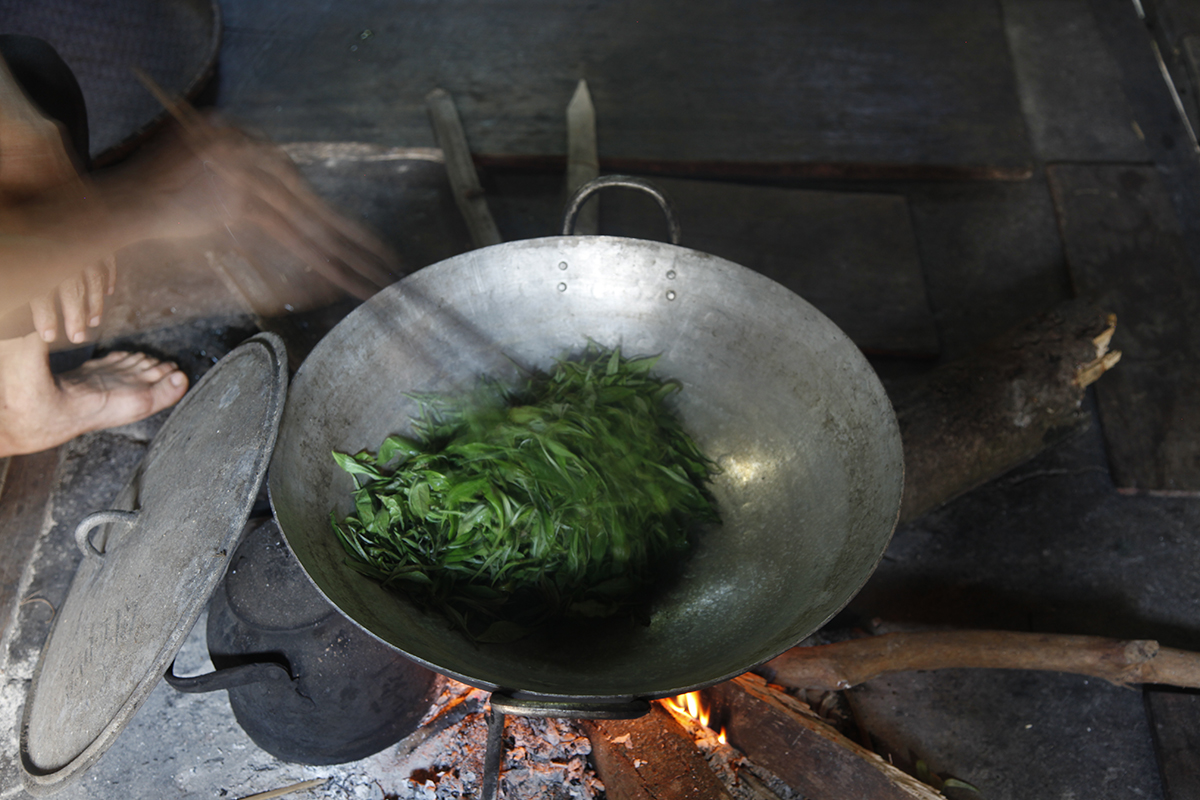Many types of tea are produced using a specific method or cultivar, or on a defined terroir. While most of these teas are made on modestly sized smallholdings, they are sometimes processed on larger premises with bigger facilities, and even in factories that make tea on an industrial scale. The key difference with teas processed traditionally as opposed to industrially manufactured teas is the artisanal quality of the former; this involves skilled work done by hand, and the process is judged through the feel, appearance and smell of the leaves at every stage.
The most artisanal way of producing tea, however, can be seen here, and is very simple. I was honoured to be a guest of a man from the Dao ethnic group, who makes his tea at home. He throws fresh tea leaves onto the sides of a wok heated over a very hot fire. He shakes them constantly to dry them out and shape them, while never letting them burn. It’s a rudimentary method commonly used by people who live in tea-growing regions. In the cup, the liquor is fairly rough, powerful and quite astringent, and retains some of the smell of the fire. It wakes you up, and epitomises the simplicity and generosity of this rural hospitality, reminding you what life is really about.





